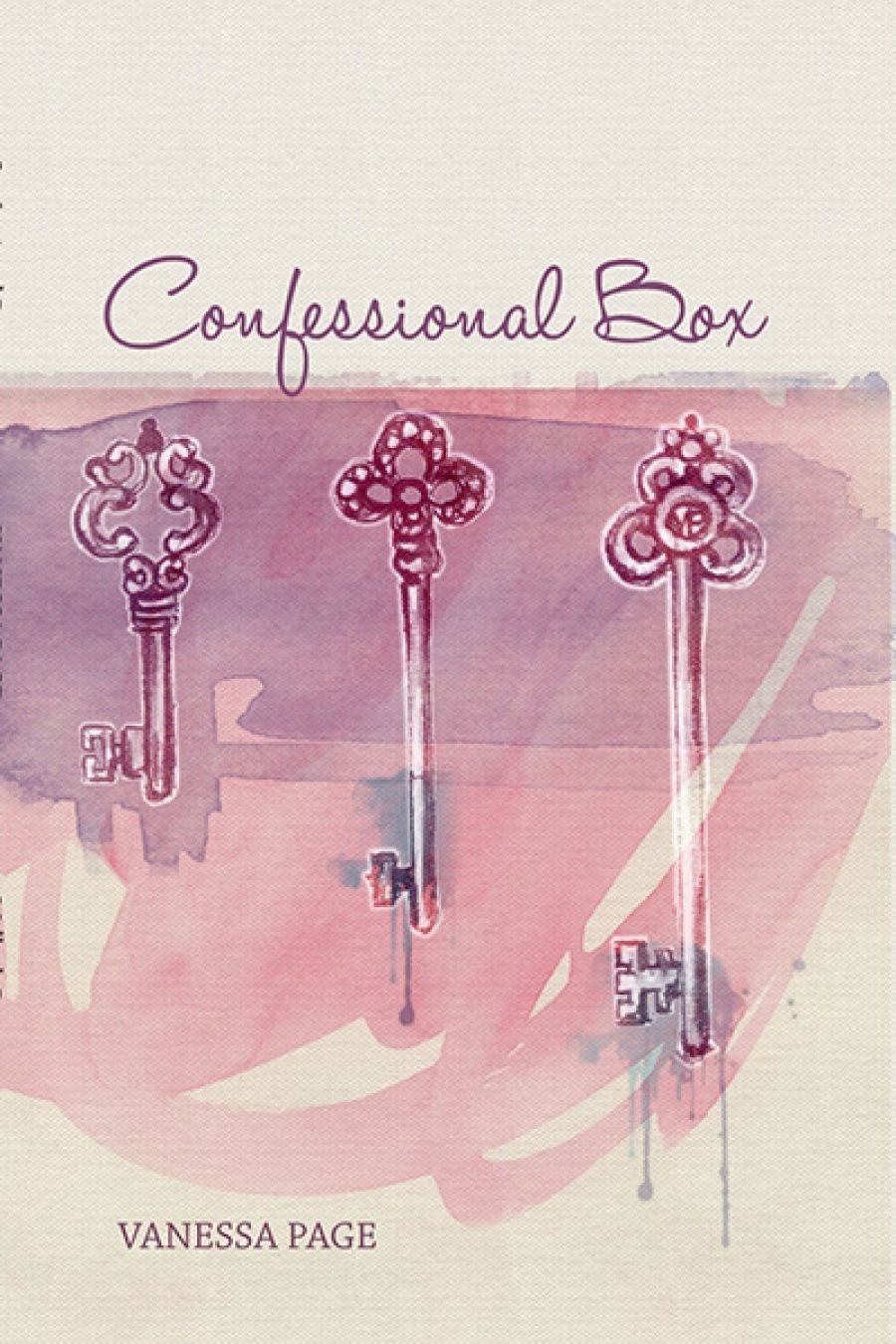
- Free Article: No
- Contents Category: Poetry
- Custom Article Title: Peter Kenneally reviews 'Confessional Box'
- Review Article: Yes
- Article Title: Vanessa Page 'Confessional Box'
- Online Only: No
- Custom Highlight Text:
It’s simple. A young woman, her love for her partner slipping away, looks at their suburb, and him, and their relationship, and writes bronze-clad poetry about it. Then she takes to the bush, describing its towns and picking at its history with the same clear eye she uses to examine her lost love. She combines a photographic exactness with a resounding turn of phrase and an ability to use a refrain just enough and no more.
- Book 1 Title: Confessional Box
- Book 1 Biblio: Walleah Press, $18.50 pb, 78 pp
People often say of a child that they are ‘an old soul’. At the risk of patronising Vanessa Page, author of this adamantine, lyrical first collection, she has ‘an old eye’, which she trains on her experience and surroundings. In five lines in ‘Sanctuary’ she does everything that Sappho does: elsewhere, many lines echo Brecht’s mimetic gestures. None of this feels deliberate, and it is wonderfully encouraging to find a young Australian poet who can traverse and claim terrains so apparently foreign and unforgiving.
Brett Dionysius, launching this book, said that Page had ‘foregone 20 years of writing juvenilia to spring from the forehead of the Queensland poetry scene as a fully-fledged post-Athena poet’. He was almost right, except that in the final section, with new love and a guarded happiness in play, Page lets her Cyprian rigour slip. It may simply be that sadness is a more contemplative state than happiness – in the same way that pessimists are said to be those who see the world most clearly – but the book ends on an artless, breathy note, and now the verse has a more obviously youthful feel to it. The poet’s attention, her language, undergo a carefree diffusion, but, after so much control and clarity, acquired at such cost for our benefit, we should take pleasure in it, as she does.


Comments powered by CComment